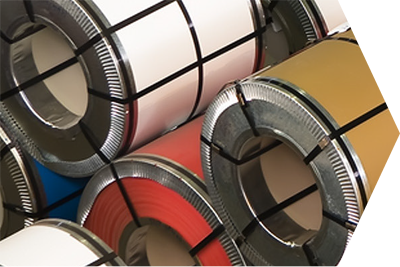Aluzinc

Aluzinc, Zincalume or Galvalume are different names of the same product, which is recently being used in interior and exterior surfaces of the sandwich panel. It consists of 55% Aluminium, 43.4% Zinc and 1.6% Silicone.
Aluzinc is 2-6 times more corrosion resistant than the galvanized sheet due its aluminium and zinc content. Aluminium forms a layer between the steel surface and the atmosphere to obtain protection. This aluminium barrier, i.e. its extremely resistant aluminum oxide coating, does not dissolve in most environments and provides a long-lasting protection against corrosion. However, zinc provides a similar protection with the hot-dip galvanized sheet (e.g. against situations such as when steel comes out in surface layer as a result of possible cuts and scratches). In principle, zinc reacts instead of steel plates as it is referred to as sacrificial cathodic protection. By protective synergy of aluminium and zinc, Aluzinc provides a strength far beyond the protection provided by the aluminium or zinc alone.
Due to its atmospheric corrosion resistant structure, it provides assurance against rots and perforations. It is capable of reflecting solar radiation.
| Quality | Thickness Tolerance |
Tensile Strength |
Elongation at Break % | Coating Weight (Zinc) Hot Dipping |
Paint Types |
|---|---|---|---|---|---|
| DX51D+Z | ±0,05MM | 270-500 | Min 22* | 100-275 gr/m² | Polyester, PVdf, Plastisol, Silicone Polyester, Polyurethane |
| DX51D+AZ | ±0,05MM | 270-500 Mpa | Min.22* |
100-150-200 gr/m² |
|
| EN 10215 | EN 10215 | EN 10215 | EN 10215 |
EN 10215 |
|
| For thickness equal to or lower than 0,70mm, Elongation value should be considered 2 units less. | |||||


